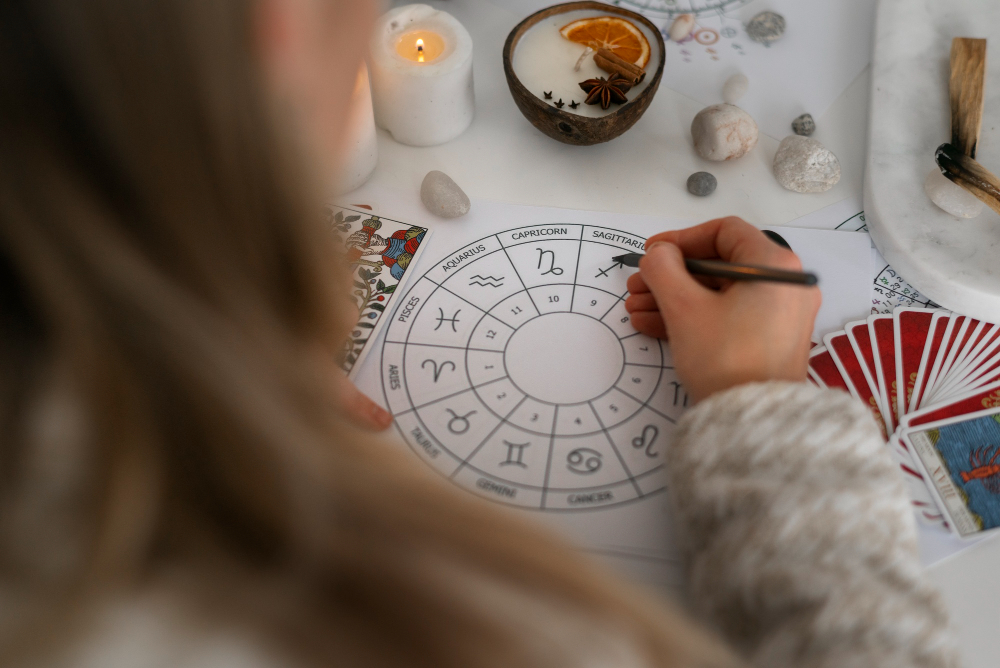
Ayurveda and Vedic Astrology are two ancient sciences deeply rooted in the cultural and spiritual traditions of India, offering holistic insights into health, well-being, and the interplay of cosmic forces with human life. Both disciplines, while distinct, are interconnected and share a common philosophical foundation, emphasizing balance and harmony as the keys to a fulfilled existence. Ayurveda, often referred to as the “science of life,” is a system of natural medicine that focuses on balancing the body, mind, and spirit through diet, lifestyle, and herbal remedies. On the other hand, Vedic Astrology, or Jyotish, is the study of celestial patterns and their influence on human destiny, providing guidance on life’s challenges and opportunities.
The synergy between Ayurveda and Vedic Astrology is evident in their shared principles of the five elements—earth, water, fire, air, and ether—and their influence on the human constitution. In Ayurveda, these elements combine to form the three doshas: Vata, Pitta, and Kapha, which govern physical and mental health. Vedic Astrology complements this understanding by analyzing planetary alignments that affect these doshas. For instance, a prominent Mars in a birth chart may increase Pitta energy, potentially leading to imbalances such as inflammation or irritability. An Ayurvedic practitioner, guided by Vedic Astrology, can tailor treatments to mitigate such imbalances, ensuring a holistic approach to health.
One of the most profound connections between Ayurveda and Vedic Astrology lies in their diagnostic tools. Ayurvedic practitioners often consult an individual’s birth chart to understand their prakriti (natural constitution) and vikriti (current imbalances). This chart reveals insights into the person’s physical tendencies, emotional patterns, and karmic influences. For example, an afflicted Moon in the natal chart might suggest emotional turbulence or stress, which can be addressed through Ayurvedic practices such as mindfulness, herbal remedies, or dietary adjustments. Similarly, the timing of specific planetary transits can indicate periods of vulnerability to health issues, allowing practitioners to recommend preventive measures.
Moreover, Ayurveda and Vedic Astrology emphasize the role of karma and spiritual growth in achieving optimal health and well-being. According to these systems, physical ailments are often manifestations of deeper karmic imbalances. Vedic Astrology can identify these karmic patterns, offering clarity on the lessons an individual is meant to learn. Ayurveda provides the tools to address these lessons on a physical and emotional level, supporting the healing process. For example, if Saturn’s influence indicates a period of restriction or hardship, Ayurvedic practices can help build resilience through grounding foods, meditation, and strengthening routines.
The use of gemstones, mantras, and rituals in Vedic Astrology also aligns with Ayurvedic principles of vibrational healing. Gemstones like blue sapphire for Saturn or ruby for the Sun are believed to influence planetary energies, harmonizing an individual’s doshas. Similarly, Ayurvedic treatments like sound therapy or chanting specific mantras resonate with the body’s subtle energies, promoting balance and vitality. Together, these practices create a synergistic approach to healing that integrates the physical, mental, and spiritual dimensions.
In modern times, the integration of Ayurveda and Vedic Astrology is gaining popularity among holistic health practitioners and seekers of alternative medicine. People are increasingly recognizing the interconnectedness of their physical health, emotional well-being, and the cosmic forces at play in their lives. Personalized wellness programs that incorporate astrological insights with Ayurvedic therapies are becoming a valuable tool for addressing chronic conditions, stress, and lifestyle-related disorders. By aligning with the rhythms of nature and the cosmos, individuals can achieve a deeper sense of harmony and purpose.
Furthermore, both Ayurveda and Vedic Astrology underscore the importance of aligning one’s lifestyle with the cycles of time, or kala. Ayurveda emphasizes seasonal routines (ritucharya) and daily practices (dinacharya) to maintain health, while Vedic Astrology advises actions based on favorable planetary periods (muhurtas). For instance, an individual experiencing a challenging Saturn transit may be advised to practice discipline and simplicity, aligning with Ayurvedic principles of detoxification and grounding to navigate the period more effectively.
The spiritual dimension of Ayurveda and Vedic Astrology also provides a path for self-discovery and transformation. Ayurveda encourages self-awareness through practices like meditation and yoga, which help individuals connect with their inner essence. Vedic Astrology expands this understanding by revealing the soul’s journey and higher purpose, offering insights into the unique strengths and challenges one must navigate in this lifetime. Together, these sciences guide individuals toward greater self-realization, empowering them to live in alignment with their true nature.
In conclusion, the integration of Ayurveda and Vedic Astrology offers a profound approach to health and well-being that goes beyond the physical realm. By addressing the interconnectedness of body, mind, and spirit, these ancient sciences provide a holistic framework for understanding and navigating life’s challenges. Whether it’s through balancing doshas, aligning with planetary energies, or uncovering karmic lessons, the wisdom of Ayurveda and Vedic Astrology continues to inspire and empower individuals on their journey toward harmony and self-realization. This timeless synergy reminds us of the beauty and complexity of existence, encouraging us to live with greater awareness, balance, and connection to the universe.



0 Comments